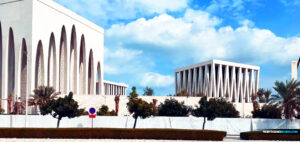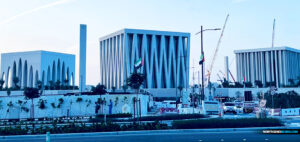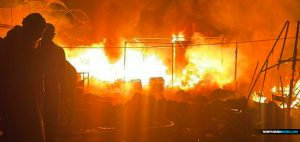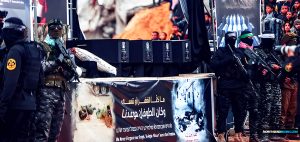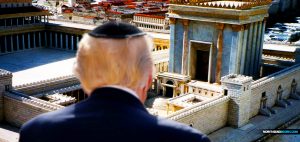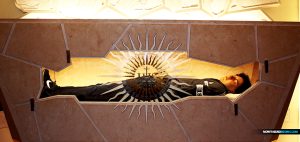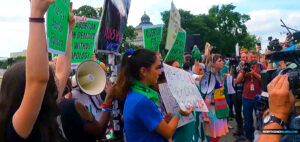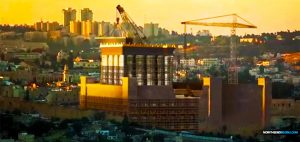Al-Qaeda
AM YISRAEL CHAI! Israel Defends Jerusalem With Fresh Wave Of Air Strikes Over Gaza
Israel bombarded the Hamas-ruled Gaza Strip with nearly 200 airstrikes early Saturday, the military said, widening a blistering assault on Gaza rocket operations to include the prime minister’s headquarters, a police compound and a vast network of smuggling tunnels.

Over 200 air strikes hit back at terrorists
“”Pray for the peace of Jerusalem: they shall prosper that love thee.” Psalms 122:6
GAZA CITY, Gaza Strip (AP) — Israel bombarded the Hamas-ruled Gaza Strip with nearly 200 airstrikes early Saturday, the military said, widening a blistering assault on Gaza rocket operations to include the prime minister’s headquarters, a police compound and a vast network of smuggling tunnels.

Associated Press/Ariel Schalit – Explosion and smoke rise following an Israeli strike in Gaza, seen from the Israel Gaza Border, southern Israel, Saturday, Nov. 17, 2012. Israel bombarded the Hamas-ruled Gaza Strip with more than 180 airstrikes early Saturday, the military said, widening a blistering assault on militant operations to include the prime minister’s headquarters, a police compound and a vast network of smuggling tunnels. The new attacks followed an unprecedented rocket strike aimed at the contested holy city of Jerusalem that raised the stakes in Israel’s violent confrontation with Palestinian militants. (AP Photo/Ariel Schalit)
The new attacks, which Gaza officials say left 10 dead, followed an unprecedented rocket strike aimed at the contested holy city of Jerusalem that raised the stakes in Israel’s violent confrontation with Palestinian militants and extended the battlefield.
Israeli aircraft also kept pounding their original targets, the militants’ weapons storage facilities and underground rocket launching sites. They also went after rocket squads more aggressively. The military has called up thousands of reservists and massed troops, tanks and other armored vehicles along the border with Gaza, signaling a ground invasion could be imminent.
Militants, undaunted by the heavy damage the Israeli attacks have inflicted, have unleashed some 500 rockets against the Jewish state, including new, longer-range weapons turned for the first time this week against Jerusalem and the Tel Aviv heartland. Following those attacks, the military deployed an Iron Dome rocket defense battery in central Israel on Saturday. The system, devised precisely to deflect the Gaza rocket threat, was deployed two months earlier than planned, the Defense Ministry said.
Ten people, including eight militants, were killed and dozens were wounded in the various attacks early Saturday, Gaza health official Ashraf al-Kidra said. In all, 40 Palestinians including 13 civilians and three Israeli civilians have been killed since the Israeli operation began.
The violence has widened the instability gripping the Mideast. At the same time, revolts against entrenched regional regimes have opened up new possibilities for Hamas. Islamists across the Mideast have been strengthened, bringing newfound recognition to Hamas, shunned by the international community because of its refusal to recognize Israel and renounce violence.
A high-level Tunisian delegation, led by Foreign Minister Rafik Abdessalem, drove that point home with a visit to Gaza on Saturday. The foreign minister’s first stop was the still-smoldering ruins of the three-story office building of Gaza’s prime minister, Ismail Haniyeh of Hamas.
“Israel has to understand that there is an international law and it has to respect the international law to stop the aggression against the Palestinian people,” Abdessalem told The Associated Press during a tour of Gaza’s main hospital, Shifa, later Saturday. He said his country was doing whatever it can to promote a cease-fire, but did not elaborate.
It was the first official Tunisian visit since Hamas’s violent 2007 takeover of the territory. Egypt’s prime minister visited Friday and a Moroccan delegation is due on Sunday, following a landmark visit by Qatar’s leader last month that implied political recognition.
Israel had been incrementally expanding its operation beyond military targets but before dawn on Saturday it ramped that up dramatically, hitting Hamas symbols of power. Israeli defense officials, speaking on condition of anonymity to discuss confidential decisions, said military chief Lt. Gen. Benny Gantz personally ordered the scope of the airstrikes to be increased.
Haniyeh’s three-story office building was flattened by an airstrike that blew out windows in neighboring homes. He was not inside the building at the time. The building’s security chief said Hamas scored points despite Israel’s military superiority.
“Hamas responded to the Zionist aggression and hit them in the depth of their land,” he said, referring to rockets aimed Friday at Jerusalem and Tel Aviv.
Another airstrike brought down the three-story home of a Hamas commander in the Jebaliya refugee camp near Gaza City, critically wounding him and injuring other residents of the building, medics said.
Missiles smashed into two small security facilities and the massive Hamas police headquarters in Gaza City, setting off a huge blaze that engulfed nearby houses and civilian cars parked outside, the Interior Ministry reported. No one was inside the buildings.
The Interior Ministry said a government compound was also hit while devout Muslims streamed to the area for early morning prayers, although it did not report any casualties from that attack.
Air attacks knocked out five electricity transformers, cutting off power to more than 400,000 people in southern Gaza, according to the Gaza electricity distribution company. People switched on backup generators for limited electrical supplies.
In southern Gaza, aircraft went after underground tunnels militants use to smuggle in weapons and other contraband from Egypt, residents reported. A huge explosion in the area sent buildings shuddering in the Egyptian city of El-Arish, 45 kilometers (30 miles) away, an Associated Press correspondent there reported.
The Israeli military said more than 800 targets have been struck since the operation began
The widened scope of targets brings the scale of fighting closer to that of the war the two groups waged four years ago. Hamas was badly bruised during that conflict, but has since restocked its arsenal with more and better weapons, and has been under pressure from smaller, more militant groups to prove its commitment to fighting Israel.
The attack aimed at Jerusalem on Friday and two strikes on metropolitan Tel Aviv showcased the militants’ new capabilities, including a locally made rocket that appears to have taken Israeli defense officials by surprise. Both areas had remained outside the gunmen’s reach before.
Just a few years ago, Palestinian rockets were limited to crude devices manufactured in Gaza. But in recent years, Israeli officials say, Hamas and other armed groups have smuggled in sophisticated, longer-range rockets from Iran and Libya.
Israeli leaders have threatened to widen the operation even further if the rocket fire doesn’t halt. Foreign Minister Avigdor Lieberman said options included the possible assassination of Haniyeh, the prime minister.
Israeli Prime Minister Benjamin Netanyahu met in emergency session with Cabinet ministers Friday and they approved mobilizing up to 75,000 reservists, more than doubling the number authorized earlier this week. That would be the largest call-up in a decade. At a parking lot in central Israel, uniformed reservists waited to board buses. One prayed, covered in a Jewish prayer shawl.
Lt. Col. Avital Leibovich, a military spokeswoman, said 16,000 reservists were called to duty on Friday and others could soon follow. She said no decision had been made on a ground offensive but all options are on the table.
President Barack Obama spoke separately to Israeli and Egyptian leaders Friday as the violence in Gaza intensified. In a conversation with Israeli Prime Minister Benjamin Netanyahu, he reiterated U.S. support for Israel’s right to self-defense. To Egyptian President Mohammed Morsi, he praised Egypt’s efforts to ease regional tensions. source – Yahoo News

Al-Qaeda
Obama Administration ‘Loses’ Half Billion In Military Weaponry To al-Qaeda In Yemen
Pentagon officials cannot track the whereabouts of $500 million worth of military equipment the U.S. donated to Yemen since 2007 – raising alarms that the hardware may have ended up with al-Qaeda or Iranian-backed rebels.

Pentagon officials cannot track the whereabouts of $500 million worth of military equipment the U.S. donated to Yemen since 2007 – raising alarms that the hardware may have ended up with al-Qaeda or Iranian-backed rebels.
Ever wonder how al-Qaeda and ISIS always have such advanced weaponry and military capabilities? Wonder no more! Obama gives it to them, that’s how they do it. Did you think it was a trick question?
U.S. officials said Tuesday that increasing instability in Yemen has made it impossible to keep tabs on donated equipment that includes small arms, ammunition, patrol boats and night-vision goggles, according to The Washington Post.

U.S. firearms supplied to the Interior Ministry in Yemen, which has received $500 million in aid from the United States since 2007 under an array of Defense Department and State Department programs. (Government Accountability Office)
“We have to assume it’s completely compromised and gone,” a legislative aide on Capitol Hill, speaking on the condition of anonymity, told The Post.
In January, Yemen’s government was overtaken by Iranian-backed Shiite Houthi rebels. The rebels are increasingly taking over military bases.
Since then, the U.S. closed its embassy in Yemen and the Defense Department has stopped delivering equipment to the country, including a shipment of $125 million worth of military products scheduled to be delivered earlier this year.
This is the equipment no one can find, The Post reports:
- 1,250,000 rounds of ammunition
- 200 Glock 9 mm pistols
- 200 M-4 rifles
- 4 Huey II helicopters
- 2 Cessna 208 transport and surveillance aircraft
- 2 coastal patrol boats
- 1 CN-235 transport and surveillance aircraft
- 4 hand-launched Raven drones
- 160 Humvees
Al-Qaeda
Al-Qaeda Affiliate Threatens To Kill American Hostage Luke Somers
Luke Somers, a 33-year-old photojournalist, was abducted in 2013 in Sanaa, the capital of Yemen, according to media reports. In a YouTube video published Wednesday, he says he is certain his “life is in danger.”

An al-Qaeda affiliate has threatened to kill an American hostage in three days if the U.S. government does not respond to the group’s demands, according to terrorist monitoring group Site Intelligence Group.
Luke Somers, a 33-year-old photojournalist, was abducted in 2013 in Sanaa, the capital of Yemen, according to media reports. In a YouTube video published Wednesday, he says he is certain his “life is in danger.”

The video features an al-Qaeda official and a brief message from Somers – dressed in a purple shirt and with a shaved head – at the end. He notes that he was born in England but has American citizenship and lived in America for most of his life.
The al-Qaeda operative who speaks throughout much of the video and threatens that Somers will meet his “inevitable fate” if the group’s demands are not met is Nasser bin Ali al-Ansi of the Arabian Peninsula affiliate, Site Intelligence Group said. The video does not list what those demands are, but al-Ansi says Washington is “aware” of them.
“It’s now been well over a year since I’ve been kidnapped in Sanaa,” Somers said in the footage. “Basically, I’m looking for any help that can get me out of this situation. I’m certain that my life is in danger. So as I sit here now, I ask, if anything can be done, please let it be done. Thank you very much.”
Somers was kidnapped in September 2013 from a street in Sanaa, where he had worked as a photojournalist for the Yemen Times, the Associated Press said.
Read the rest of this story on USA Today…
Al-Qaeda
Islamic Terrorists Foster Jihad With Over 90 Tweets Per Minute On Twitter
Abdulmunim Al-Mushawah revealed that about 129,600 tweets were posted by accounts affiliated to terror groups in October 2014. As a result, at least 500 accounts believed to have been run by terrorists were deactivated.

Islamic terror groups post at least 90 tweets every minute, a new report has found
The data was revealed in a survey conducted by the Saudi-based Sakina, an independent, non-governmental organisation created to engage in dialogue online as a way to combat internet radicalization.

Results showed that terror groups such as the Syrian Islamic Liberation Front, Al-Nusra Front and Islamic State (ISIS) use social media to recruit new members and to spread their propaganda.
Abdulmunim Al-Mushawah, head of the organisation, revealed that about 129,600 tweets were posted by accounts affiliated to terror groups in October 2014. As a result, at least 500 accounts believed to have been run by terrorists were deactivated.
Al-Mushawah urged for a censorship committee to be put in place in order to monitor tweets that could be written to promote insurgents’ propaganda. “The nature of the extremist can be understood by analysing his posts, identifying his social circle and understanding his internal motives and history,” he was quoted by the Saudi Gazzette as saying.
“After understanding and recognising the type of extremist the person is, we can then follow the appropriate method of dialogue knowing that it is a lengthy and complicated process at times.
“The responsibility of protecting the general public from terrorist activities does not only lie with the official directorates. It is also the responsibility of the media, mosques and educational institutes,” he continued.
“Public awareness and guidance are the campaign’s top priorities because it is important to teach people how to face one problem without creating another.”
-

 George Soros8 years ago
George Soros8 years agoProof Of George Soros Nazi Past Finally Comes To Light With Discovery Of Forgotten Interview
-

 Election 20168 years ago
Election 20168 years agoDEAD POOL DIVA: Huma Abedin Kept Those Hillary Emails That The FBI Found In A Folder Marked ‘Life Insurance’
-

 Election 20168 years ago
Election 20168 years agoCrooked Hillary Campaign Used A Green Screen At Today’s Low Turnout Rally In Coconut Creek FL
-
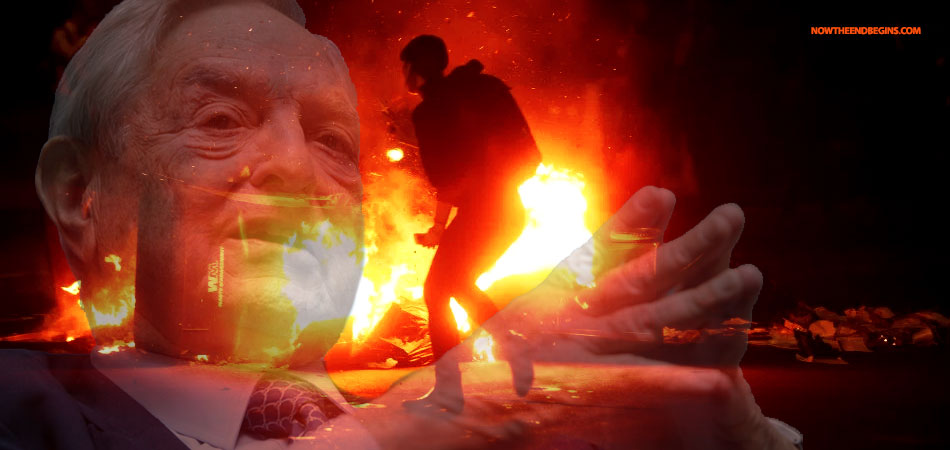
 George Soros8 years ago
George Soros8 years agoSORE LOSER: George Soros Declares War On America As Violent MoveOn.Org Protests Fill The Streets
-

 Donald Trump8 years ago
Donald Trump8 years agoDonald Trump Will Be 70 Years, 7 Months And 7 Days Old On First Full Day In Office As President
-

 Headline News8 years ago
Headline News8 years agoIf Hillary Is Not Guilty, Then Why Are Her Supporters Asking Obama To Pardon Her? Hmm…
-

 Election 20169 years ago
Election 20169 years agoWikiLeaks Shows George Soros Controlling Vote With 16 States Using SmartMatic Voting Machines
-

 End Times8 years ago
End Times8 years agoFalse Teacher Beth Moore Endorses The Late Term Partial-Birth Abortion Candidate Crooked Hillary



























